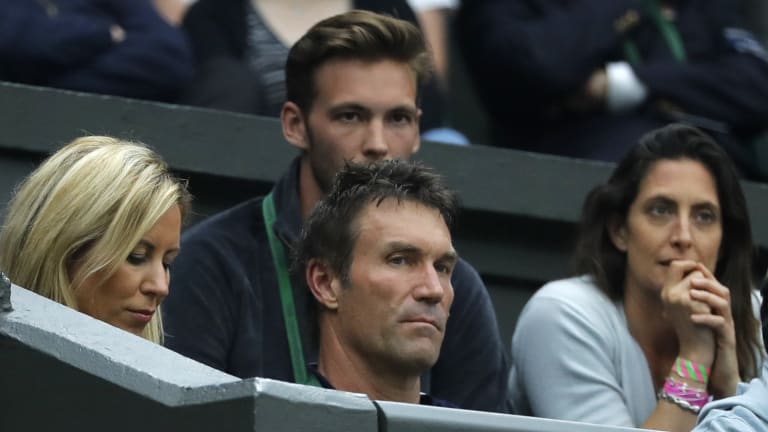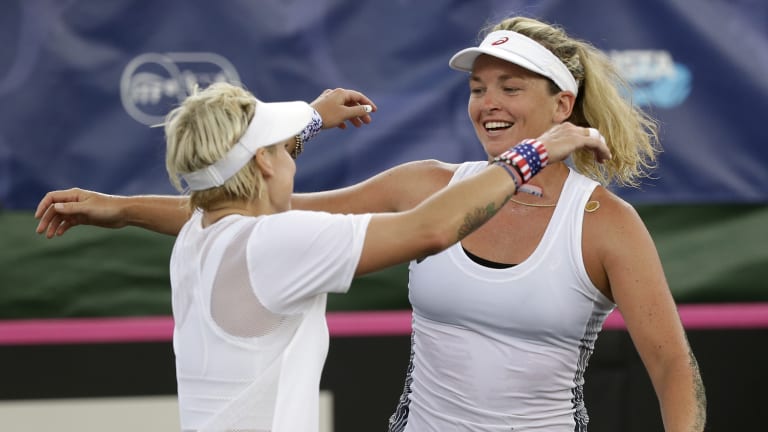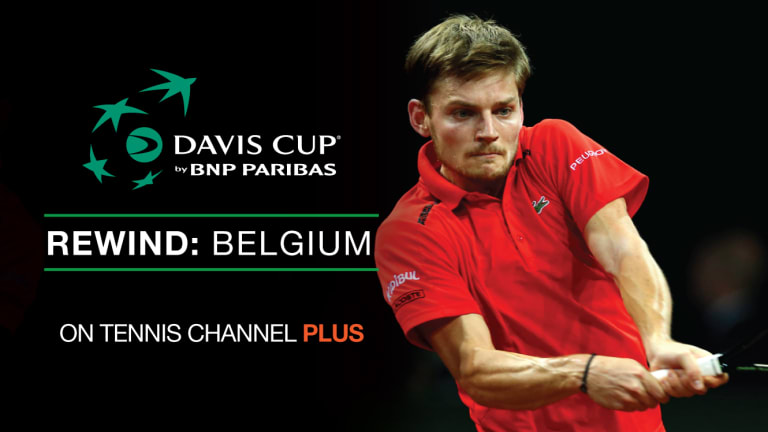This season, pre- and post-Cash, Vandeweghe has gone from just getting better to also getting it done. The Californian reached her first Grand Slam semifinal at the Australian Open, led the U.S. Fed Cup team to its first final since 2010 (Vandeweghe played a role in all three points of the Americans’ 3-2 semifinal win over three-time defending champion Czech Republic) and most recently reached another final four at a major, in her hometown of New York City.
“She’s gotten more of a growth mindset,” says U.S. Fed Cup captain Kathy Rinaldi. “She's understanding the game more. She's understanding her game—learning about patterns, and learning tactics and strategy. She's really like a sponge. She wants to learn more.”
After years of hard lessons and harder losses, Vandeweghe finally got beyond the second round of her home Slam on her 11th attempt.
“It was great to see her do well in the place where she wanted to do well the most,” says Gambill.
Vandeweghe’s success at the Slams gave her the confidence and ranking points needed to break through to the next echelon of the ranks, the Top 20. But it all started months before Melbourne, and far away from the big stage of Arthur Ashe Stadium.
“I went into the offseason first time without an injury,” says Vandeweghe. “I was really confident in my fitness. I was confident there. Tennis just kind of followed suit afterwards.”
With her health and fitness taken care of, it was up to Vandeweghe—and her team—to get the most out of her obvious talents. Kardon certainly did his part, helping Vandeweghe reach the semis of a Slam for the first time in Australia. But with Cash, a former world No. 4, 1987 Wimbledon champion and a two-time Australian Open finalist, things couldn’t look more promising for the rest of the season, and beyond.
Their partnership began with a strong surge and an abrupt halt. At their first Slam together, Vandeweghe reached the Wimbledon quarterfinals for the second time in her career. But once there, she never seriously threatened unseeded Magdalena Rybarikova, losing in straight sets.
“I told her this is the best loss you're ever going to have in your life,” says Cash. “I've got a game plan, let's go and talk about it. We're going to laugh about this in a year’s time. From then we’ve learned so much.”
After crossing the Atlantic and shifting to hard courts, Vandeweghe posted a 9-4 mark, reaching the final in Stanford and the semifinals at the US Open. At Flushing Meadows, Vandeweghe defeated former French Open finalist Lucie Safarova, No. 10 seed Agnieszka Radwanska and world No. 1 Karolina Pliskova before falling to compatriot Madison Keys, 6-1, 6-2.
“We'll do the same thing with the loss to Madison,” says Cash.


